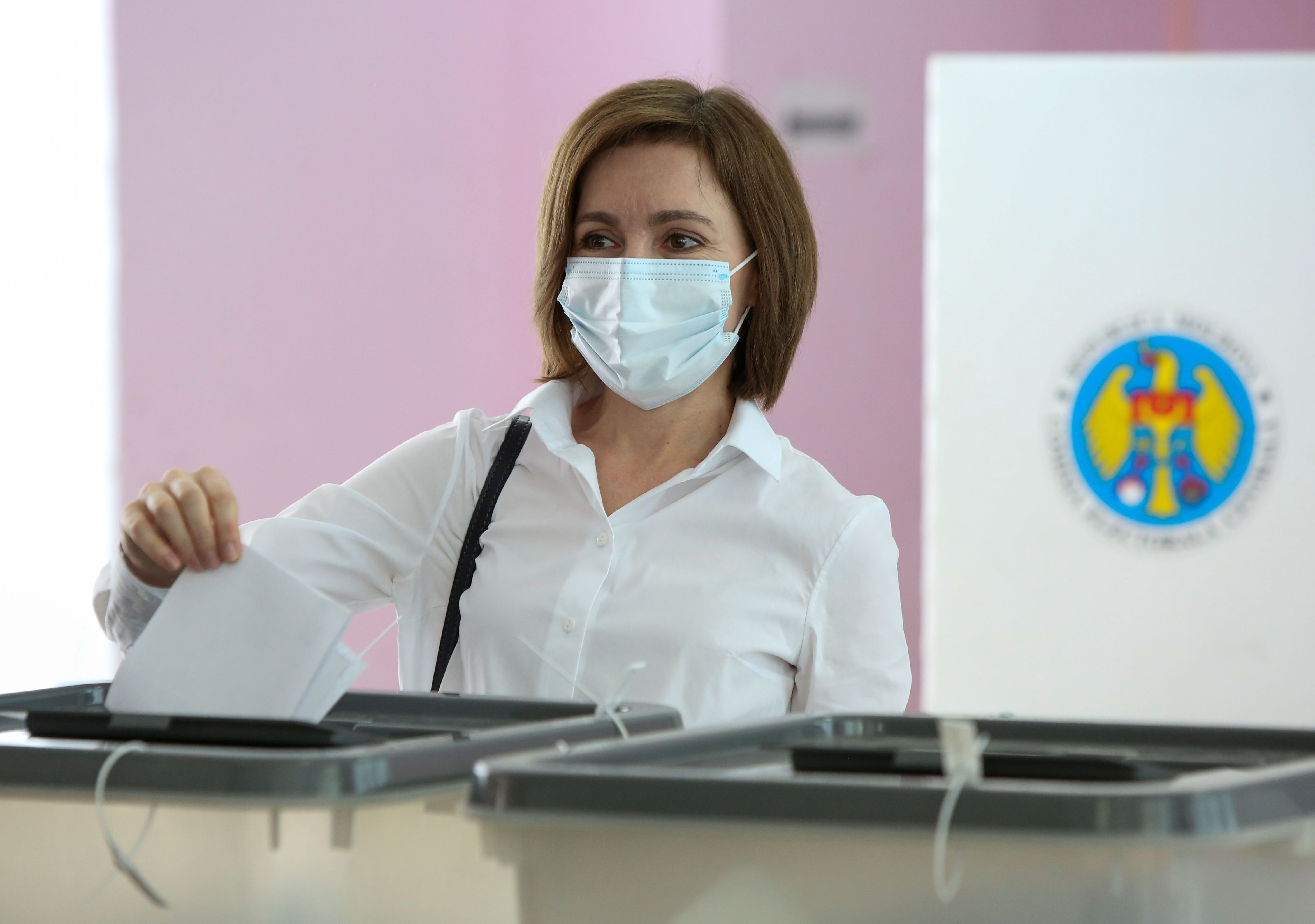President Sandu's Party Wins the Elections in Moldova
On 11 July, early parliamentary elections in Moldova brought a decisive victory for the opposition pro-president Party of Action and Solidarity (PAS). This would enable it to take over independent rule and start the announced European-oriented reforms.
 Fot. Vladislav Culiomza/Reuters
Fot. Vladislav Culiomza/Reuters
Why were the early elections held?
Maia Sandu’s goal after being elected president in November 2020 was to dissolve the parliament and hold early elections. The office’s limited prerogatives made it impossible for her to implement reforms combating the systemic corruption and oligarchy in the country. However, an informal ruling majority of parties wanted to maintain the system—the Party of Socialists (PSRM) of former President Igor Dodon and the “For Moldova” bloc composed of the Şor Party and some members of the Democratic Party controlled by the oligarchs Ilan Şor and Vlad Plahotniuc, who are hiding abroad. According to the constitution, the dissolution of parliament and announcement of new elections is possible only after two unsuccessful attempts to appoint a prime minister. The breakthrough was the verdict of the Constitutional Court, which recognised as unlawful the attempt to postpone the dissolution of parliament by declaring a state of emergency.
How will the composition of parliament change in the new term?
In Moldova’s 101-seat parliament, there will be a complete change in the balance of power. PAS won 53% of the votes and 63 seats, 49 more than it had at the end of the previous term. The strongest party until now, PSRM, formed a coalition before the elections with the extra-parliamentary Party of Communists of former President Vladimir Voronin. Their Bloc of Communists and Socialists (BECS) won 27% and 32 seats, 5 fewer than PSRM had. Also, Şor exceeded the 5% electoral threshold with 6% of the vote and 6 MPs, a loss of 3. This time, the Democratic Party and the pro-Western Political Platform Dignity and Truth did not enter parliament. Remaining outside parliament will be the bloc of Renato Usatîi, the mayor of Bălţi, who was third in the last presidential election with 16% of the votes.
What made PAS victorious?
The prospect that PAS would govern independently mobilised its pro-Western electorate and others, including Russian-speaking ones, who were convinced by proposals of a radical fight against corruption, reform of the judiciary, as well as raising the standard of living and restoring citizens’ faith in the state. At the same time, BECS’s attempts to direct the campaign to geopolitical issues and to scare voters with Moldova’s hypothetical entry into NATO, joining Romania, or LGBT themes were unsuccessful. While the public welcomed Romania’s and the EU’s aid during the peak of the COVID-19 pandemic, the support for BECS from Russia, which is disappointed with Dodon’s rule, was modest. The Moldovan diaspora living in the West also had a significant impact on the result of the elections. It cast 14% of all votes, but 86% for PAS.
How will the election results affect Moldova’s international orientation?
Having a large parliamentary majority and the support of the president, PAS will be able to undertake reforms aimed at bringing Moldova closer to European standards. The new authorities will be supported by the EU—before the elections, the European Commission offered a three-year aid package of €600 million—and by the U.S. Polish support was also offered by President Andrzej Duda during Sandu’s visit to Warsaw in June. The PAS government will probably continue to avoid unequivocal geopolitical declarations that could antagonise the pro-Russia citizenry and provoke Russia. A chance to normalise relations with that country, in particular an end to the embargo on Moldovan food, would be Sandu’s planned visit to Moscow. The period of PAS rule is unlikely, however, to bring significant progress to the reintegration of Transnistria. The sides in the conflict are not interested in that outcome, and this is a marginal issue in the public debate in Moldova.


